Stuart Aken's Blog, page 304
June 12, 2011
Writing: 4700 Words, And on a Sunday.
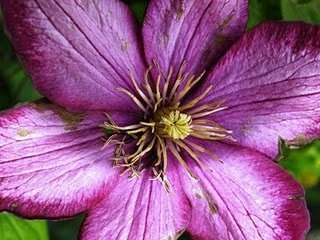 The epic fantasy continues apace. Two sessions today, with 1,900 words before breakfast. Interesting illustration of the workings of the subconscious: I was eating breakfast with my wife and we taking about nothing in particular. I mentioned that I'd started the session with very little idea of my direction, really no more than an aim in mind. A plot device had arrived, as they do, out of the blue, and I'd written this as part of the story, adding drama and action. But, in talking about the new plot section, I suddenly realised that I had worked the event to tie in exactly with another event and that the two would coincide a couple of days further in the story. This coincidence would work excellently with the major story threads. And this all happened as if by accident. But was, of course, my subconscious diligently doing its duty and feeding me the ideas just when they were needed.The second session took me to a total of 4,700 today. Very satisfactory, especially since I also had to produce a new character profile for a character who is quite important to this part of the novel, but who will disappear after this section ends.Made a start on the next lot of updates for the contest page, but I'm tired now, so that will have to wait. Also, worked on more blog posts so I can schedule those for the days I'll be away from the computer in the not-too-distant future.The target is 200,000 (though that is flexible, as it depends on the way the plot finally pans out. But it's a reasonable notional figure to aim for). I'm currently at 171,118, which leaves a balance of 28,882 words to complete before I take my break from the computer on 6 July. Think I'll make it?
The epic fantasy continues apace. Two sessions today, with 1,900 words before breakfast. Interesting illustration of the workings of the subconscious: I was eating breakfast with my wife and we taking about nothing in particular. I mentioned that I'd started the session with very little idea of my direction, really no more than an aim in mind. A plot device had arrived, as they do, out of the blue, and I'd written this as part of the story, adding drama and action. But, in talking about the new plot section, I suddenly realised that I had worked the event to tie in exactly with another event and that the two would coincide a couple of days further in the story. This coincidence would work excellently with the major story threads. And this all happened as if by accident. But was, of course, my subconscious diligently doing its duty and feeding me the ideas just when they were needed.The second session took me to a total of 4,700 today. Very satisfactory, especially since I also had to produce a new character profile for a character who is quite important to this part of the novel, but who will disappear after this section ends.Made a start on the next lot of updates for the contest page, but I'm tired now, so that will have to wait. Also, worked on more blog posts so I can schedule those for the days I'll be away from the computer in the not-too-distant future.The target is 200,000 (though that is flexible, as it depends on the way the plot finally pans out. But it's a reasonable notional figure to aim for). I'm currently at 171,118, which leaves a balance of 28,882 words to complete before I take my break from the computer on 6 July. Think I'll make it?The picture shows a Clematis from my garden, taken during the week, before the welcome rain started.

Published on June 12, 2011 13:11
Stuart's Daily Word Spot: Byronic hero
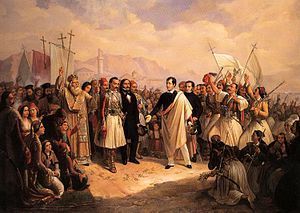 Image via Wikipedia
Image via WikipediaByronic hero: A jaded and flawed hero, founded on the life and works of romantic poet, Lord Byron. He is usually erratic, disrespectful, self-destructive. His emotional behaviour often isolates him from the world. Byronic heroes appear throughout literature: Heathcliff is a good example. They are still common in certain types of romance, and the Phantom in the Phantom of the Opera is a relatively contemporary example, though there are doubtless innumerable modern examples.
12 June 1991 – Boris Yeltsin became first democratically elected President of Russia.For all that he was perceived as a drunk and a buffoon in some circles, and was undeniably eccentric, he was a symbol of the emergence of the USSR from its communist straightjacket and into the modern political clothing of democracy. Still far to go before the corruption of the past is purged and yet to throw off the traditional urge to appoint a dictatorial figure as a leader, the Russians are slowly modernising their government to bring it into line with contemporary ideas.

Published on June 12, 2011 07:00
June 11, 2011
Writing: 4300 Words; But it is Saturday
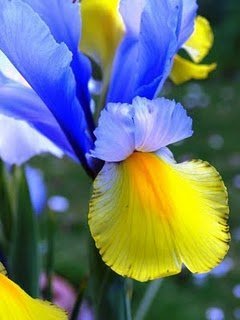 A latish night last night but up early for a Saturday and wrote 1,900 words before breakfast. Two of the main protagonists are featuring a lot during the current sessions, as there is a lot happening for them but the other two threads are both in quiet periods.
A latish night last night but up early for a Saturday and wrote 1,900 words before breakfast. Two of the main protagonists are featuring a lot during the current sessions, as there is a lot happening for them but the other two threads are both in quiet periods.The garden at the front is slowly being prepared for a relatively major project and today that moved a step forward, when Valerie and I removed a major obstacle in the form of a large bush. Transplanted it to another part of the garden. Let's hope it recovers.
After lunch, I had a second session and completed another character profile for a minor character who has decided she should take a more prominent role. They do this to you, don't they? Characters take control and dictate certain aspects and you just have to go along with them. I usually find they are right as well. After that, I wrote another 2,400 words, featuring the new character in an essential part of the narrative. So, 4,300 words of epic fantasy done.
I added a couple of pictures to my Facebook album, 'My Homeland' and then responded to the comments they attracted.
Kate has gone to yet another 18th birthday party - her life seems to be full of these as her friends all reach that age. She has her first A level exams on Thursday.
So, we're going to relax now, having taken our constitutional a little earlier.
The picture was one I took in the back garden a couple of days ago.

Published on June 11, 2011 12:08
Stuart's Daily Word Spot: Karma
 Image via Wikipedia
Image via WikipediaKarma: noun - in Buddhism & Hinduism, the total of someone's actions, considered to determine that person's future states of existence; in Jainism, the subtle physical matter binding the soul as a result of bad acts; fate or destiny following as effect from cause.
'Deepika knelt in prayer before the altar to one of her many gods, pleading for mercy in the expectation that her karma would return her to life as a cockroach after her death.'
'Karma, mate: you shouldn't have pinched that handbag from that old woman. That's why you've fallen and broken your leg now; karma.'

Published on June 11, 2011 07:00
June 10, 2011
Writing: Another 4200 Words Today
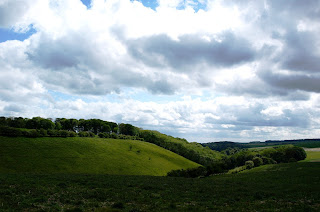 Two sessions today, with 1,800 words before breakfast and then a visit to the dentist (nothing serious - an x-ray and the need to cap the troublesome tooth, meaning further visits in the future, oh good!). Then replaced the windscreen wipers on the car and applied a bit of spray paint to areas damaged on the body work.
Two sessions today, with 1,800 words before breakfast and then a visit to the dentist (nothing serious - an x-ray and the need to cap the troublesome tooth, meaning further visits in the future, oh good!). Then replaced the windscreen wipers on the car and applied a bit of spray paint to areas damaged on the body work.The second session, after lunch, took the total for the epic fantasy to 4,200, and I completed another character profile. Still moving well and a good deal happening to keep the reader entertained. It's great fun creating action and conflict, obstacles and barriers for the characters.
A few more blog posts scheduled until Google decided to play up and mess me about.
A short constitutional with my wife for air and exercise and then a final session with the emails before this and then relaxation.

Published on June 10, 2011 12:38
Followers Missing
This has happened before. there is some issue with Blogger/Google that sometimes makes the 'Followers' disappear. They will return. But, in the meantime, if you wish to 'follow' and you are with Facebook, please use the Networked Blogs link instead.
Thanks for your patience.
Thanks for your patience.
Published on June 10, 2011 08:30
Stuart's Daily Word Spot: Jack
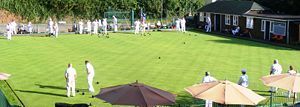 Image via Wikipedia
Image via WikipediaJack: noun - a man, male representative of the common folk, ordinary man; lad, chap; a way of addressing an unknown man; figure, in the form of a man, which strikes a bell on the outside of a clock; sailor; serving man, labourer, odd-job man; lumberjack; military policeman, detective; the knave or lowest court card showing a picture of a male youth; something which saves labour; a device, tool; machine for turning a spit to roast meat; any of various machines consisting of a roller or winch; frame for sawing wood; part of a spinet or harpsichord connecting a key to its corresponding string, and causing the string to be plucked when the key is pressed down; a device, usually portable, for lifting heavy objects, often one used under a vehicle to raise it off the ground; an oscillating lever in a stocking frame or knitting machine; money, five pounds, a five-pound note; in lawn Bowls - the smaller ball used as a target for the players to aim at; the male of various animals, e.g. a male hawk, a male merlin, a male ass kept for breeding mules
'Jack played cards like a man only half aware; he had a pair of jacks in his hand but jacked it in when he could've won the trick.'
'Danni stood by the Lamborghini as the hired hand placed the jack under the car to change the wheel, so she could be on her way to the gig.'
'Valerie bowled the jack to the greatest length, knowing her opponent had shown difficulty bowling to the jack at that distance.'

Published on June 10, 2011 07:00
June 9, 2011
Writing: 4200 Words. Can it be True?
 Three sessions on the epic fantasy today. And a total of 4,200 words added. And it's still going well. And I'm still enjoying it. Am I on target? I haven't done the maths; too tired now. I'll have to do a quick calc tomorrow and own up then. But we're moving and learning more about one of the protagonists and the new land I've entered with him. Great fun creating these imagined landscapes, people, customs and histories. Love it.
Three sessions on the epic fantasy today. And a total of 4,200 words added. And it's still going well. And I'm still enjoying it. Am I on target? I haven't done the maths; too tired now. I'll have to do a quick calc tomorrow and own up then. But we're moving and learning more about one of the protagonists and the new land I've entered with him. Great fun creating these imagined landscapes, people, customs and histories. Love it.Have I done anything else? Well, a short walk with my wife to buy some new wiper blades for the car and a new beard trimmer, since the old one has a switch with a mind of its own. Tickets for the holiday arrived today: whoopeee!
Entered a short story into a contest. Something I have't done for some time. And dealt with most of the emails that came in; both inboxes are now almost empty. Until tomorrow, of course.
For those of you interested in epic fantasy, have a glance at the interview with Ian Alexander, posted below.
So, the bottle of Rioja has been left to breathe and should now be ready to sample. But I'll await Valerie's return from her bowls match before I fill a glass. In the meantime, I think a spot of relaxation on the sofa with some great music; classical or rock? I'll have to decide once I'm there.

Published on June 09, 2011 12:49
Author Interview with Ian Alexander
 Hello Ian. Please tell us something about you, as a writer.
Hello Ian. Please tell us something about you, as a writer.Hello, Stuart! As a writer, I've always endeavoured to bring my readers a page-turning read that not only entertains, but challenges them to think and possibly re-examine their beliefs. It's not an easy balance, but because it's something I enjoy doing in real life, it happens quite naturally for me when I'm writing.
I know you write epic fantasy; perhaps you'd you give us some insight into Once We Kings in a few sentences.
Once We Kings is an epic fantasy in which two warring kingdoms must be brought to unity, or face annihilation. This task falls upon two unlikely young people from the opposing nations, who must first discover their true identities before they can put aside their own prejudices and save their people.
How did you come to write this particular book?
Prior to this book, I have written suspense and thrillers as Joshua Graham. But my son, who was six years old at the time, asked me to write a book for him. As he loved The Chronicles of Narnia by C.S. Lewis—and admittedly, so did I—I could not refuse such a request.
Do you have a favourite character from the book? If so, who and why this particular person?
That is like asking which of your children is your favourite. :) I especially identify with both protagonists, Render of the Western Kingdom, an escaped slave who finds a calling greater than he could ever have imagined, and Ahndien, a peasant from the Eastern Kingdom, whose love for her family launches her on a quest for destiny. But I also enjoyed the acerbic wit of Branson, a character you love to hate.
What qualities does a writer need to be successful?
First and foremost, persistence. If you cannot handle rejection, you are in the wrong field. Second, a thick skin. If you cannot handle negative opinions and reviews, you'd do best to flee with all haste from this profession. And third, inspiration. That is not as esoteric as it may seem. I draw my inspiration from the study of Scriptures and prayer. I also gain inspiration from my muse and best friend—that is to say, my wife!
What's your working method?
Try to stay awake as long as possible. Seriously, though, I try to conceive a book from the macro level and make my way to the tiniest detail. It's much easier to make cosmic changes if you have a overall blueprint (outline.) I also try to write chapters that are short enough to convey all I need to convey and propel the story forward. The idea is to make it so my reader never feels the desire to put the book down.
What's the single biggest mistake made by beginner writers?
Trying to avoid it. What I mean by that is letting fear of writing poorly stop you from writing. Bad writing can be corrected and improved. You simply cannot improve a blank page by any other means than writing something on it.
To what extent are grammar and spelling important in writing?
Grammer an speling ar inportand four reezons that aer axiomatic.
How much do you revise your MS before sending it off?
As much as needed. Every book is different. I tend to make my revisions at the macro level, so that by the time I have completed the manuscript, significant revisions are not needed.
As a writer of fantasy, to what extent do you think genre is useful in the publishing world?
The fantasy genre is useful to the publishing world to a great degree, especially if fans continue to demand more. The problem however, as someone so eloquently put it, is that it is getting increasingly difficult to write anything truly original in epic fantasy. I think that it's more important to tell a great story, regardless of how many times the themes have been revisited. As long as the story resonates, and will continue to resonate, it has value.
Many authors see marketing as a bind. What's your opinion on this, and how do you deal with it?
I am still learning to balance marketing and writing. There are times where we must relinquish control over things of which we actually have none. That takes faith. And there are times we dare not sit by indolently in hopes our books will sell themselves. That takes wisdom. In my life, I try to maintain a reasonable balance between faith and wisdom.
What sort of displacement activities keep you from writing?
Marketing (see above), paying bills and other such nonsense!
What support, if any, do you receive from family and friends, or a writing group?
I receive incredible support from my friends and family. One needs only look at the lengthy acknowledgements at the back of my book to understand this. If not for the prayers, the encouragement, the constant cheering on of my close friends and fans, I would have been discouraged a long time ago and perhaps never have published this book.
Is presentation of the MS as important as agents and publishers suggest?
Absolutely. Unless your book so resonates with the publisher reading your first five pages enough to make her overlook your typographical or formatting errors (and who really can predict when/if that happens), an acquisition editor is looking primarily to reject a MS and shave down the slush pile towering over her desk. Don't give the publisher any reason to reject your MS right from the start.
How long does it take you to write a novel?
Anywhere from two months to one year total.Who or what inspires your writing?
My wife and children inspire me. My friends and the Bible inspire me as well. I often gain insights in prayer as to what I will write in my stories and novels.
Given unlimited resources, where would you do your writing?
In a dedicated library.
Where do you actually write?
My home office.
If there's a single aspect of writing you find frustrating, what is it?
My inability to write twenty books a month. I'm working on that, though.
Is there a particular feature of writing that you really enjoy?
When a character comes to life and draws thoughts and feelings from the depths of my soul. This is when I know they will do so for the reader, so I wait in anticipation of my readers experiencing this.
Do you believe creative writing is a natural gift or an acquired skill?
It is both. Though for me, as a gift it is anything but natural. I consider it a gift in the respect that it was not earned, nor deserved, but rather, bestowed with a responsibility attached. My hope is to be a good steward of this gift and use it to bless and inspire people. But mostly, it is an acquired skill and discipline. "Lack of Talent" is really just an excuse for lack of persistence.
 What are you writing now?
What are you writing now?A tie-in novella to Once We Kings.
Do you have a website or blog where readers can visit?
www.IanAlex.com www.Joshua-Graham.comOn facebook: http://on.fb.me/IanAlex
Where can people buy your book?
Currently, Once We Kings can be purchased in ebook format for Kindle, Nook, iPad, SONY Reader, Kobo, etc. Barnes & Noble: http://bit.ly/jeio82 (Nook/Nookcolor)Amazon: http://amzn.to/iAWsMm (Kindle)Smashwords: http://bit.ly/lUlOM8 (For all other ebook readers)Apple iBooks: http://bit.ly/k7F5ML
Look for the Hardcover Edition soon to be released.

Published on June 09, 2011 08:30
Stuart's Daily Word Spot: Between or among
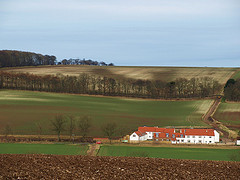 Image by stuartaken via Flickr
Image by stuartaken via FlickrBetween or among Between: preposition - reciprocal action or relation involving two or more as individuals, reciprocally, on the part of; motion or communication from each of two or more bodies, places, etc., to the other or others, to and from; confinement or restriction to two or more parties; in the interval separating two points of time, events, etc.; intermediate to, partaking of the nature of two qualities; in or through the space, line, or route separating two points, objects, etc. or bounded by; in the space bounded by two points etc., dividing, separating, connecting, uniting. Adverb - in or into an intermediate position or course, intermediately in amount, order, occupying intermediate space, intervening; in the interval or at intervals. to go to and fro as a mediator;Among: preposition - in the assemblage of, surrounded by and grouped with; surrounded by the separate members, components, or particles of, amid; in company with; in the number or class of, in comparison with; in the general practice or views of; divided between, shared by. Both words have possibly more meanings than most people appreciate. However, the confusion in usage arises only in certain circumstances: i.e. which should be used when referring to two objects and which belongs with three or more things. But this is to over simply the matter. The distinction doesn't rely on whether you're referring to two things or to three or more; it's whether you're referring to one thing and another, or to a collective or undefined number.'The gossip spread among the journalists faster than wildfire.' But, you could also write, 'The gossip spread between the journalists like wildfire.''A five bar gate rested between the gateposts.' Means something entirely different from, 'A farm gate rested among the fence posts.' In the former, we have a gate in situ with the posts at either side to support it. But in the latter, we have a gate as a separate item awaiting use along with some fence posts.There is also a question of the mood conveyed by the two words: 'The lovers walked among the bushes.' indicates a meandering stroll. But, 'The lovers walked between the bushes.' is suggestive of a more formal promenade with bushes at either side of them. One other aspect that needs a few words is the use of 'between' when used to measure something in relation to the objects the measured item lies between. So, the 'distance between the posts' does not include the width of the posts themselves but merely the space intervening. When something falls between two or more other things, those other things are not part of that something, but the defining boundaries of the space into which the something falls.
Zemanta could find no suitable illustration for this one, so here's one of my own, taken on the Wolds, near Bridlington.

Published on June 09, 2011 07:00



